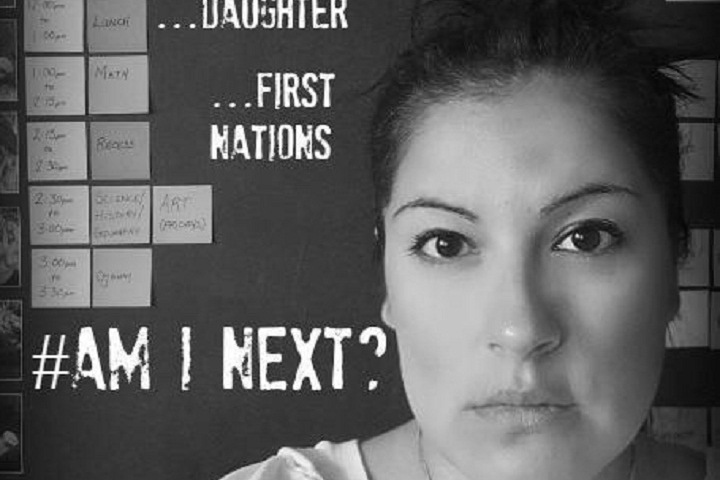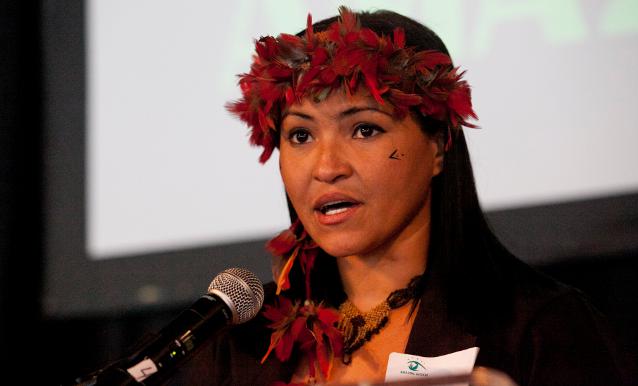
In 2008, Maisy Odjick and Shannon Alexander, two young indigenous women, disappeared in the Maniwaki area in Quebec. Their wallets and clothes were found but not their bodies. Despite claims to the contrary, the indigenous and Quebecois authorities took very little action to find them. Meanwhile, at the same time in the same area, the resources to find a young white runaway boy addicted to video game were easily gathered with Microsoft offering $50 000. There were no such resources available for two young indigenous women.
Last July, James Anaya, United Nations Special Rapporteur on the Rights of Indigenous People, released a report that exposed the “unresolved” issues at the basis of the socio economic gap between the non-indigenous and indigenous populations in Canada. Among these issues lies the increasingly precarious situation of Native women and their high vulnerability to sexual violence and murder. The report denounces the lack of “effective actions to address the problem of missing indigenous women and girls.” The report also points out the current issues of treaty negotiations as the indigenous land has become the target of non-indigenous mining and dam building.
About 2 000 indigenous young women have disappeared or been killed between 1980 and 2012 in Canada in the authorities’ indifference. The bodies of 90% of them have been found; still the code of silence prevails. It would be as if 55 000 women in France had disappeared or been murdered and the State did absolutely nothing. According to French journalist Emmanuelle Walter, that would not be tolerated. In her recent book, she describes Canada’s policy toward missing and murdered indigenous women as femicide.
Walter’s investigation took her back into the history of conquest and destruction of the Amerindian communities. She notes that the European patriarchal misogyny has contaminated Native men. Indian laws dictated by the colonizers affected the status of indigenous women. Moreover, the politics of assimilation that the Canadian government implemented in the 19th century were politics of elimination. In Canada, like in the United States, boarding schools were in charge of removing the indigenous culture with extreme violence, including sexual violence. It is estimated that 150 000 indigenous children were boarded in these schools during 150 years. This colonial past is not resolved and allows this indifference to the fate of indigenous women and girls.
In her book Conquest: Sexual Violence and American Indian Genocide, Andrea Smith established the correlation between land conquest and sexual violence as a genocidal instrument. With the ongoing conquest of underground lands in Canada by energy and mining special interests, Smith’s argument that “sexual violence is a tool by which certain peoples become marked as inherently “rapable” is most important to remember.
When Stephen Harper became the prime minister of Canada in 2006, he immediately abolished social programs for indigenous people. Then, his C45 Law project to modify the environmental laws that protected the indigenous land and populations was introduced. The same government downplayed the attacks on indigenous women, treating them as isolated crimes. These connections must be recognized to allow a better understanding of the situation of indigenous people in Canada and elsewhere. Indigenous people are fighting on every front.
Indigenous women don’t want to be the victims and live in fear. The Native Women’s Association of Canada (NWAC) has organized actions to expose this femicide. After the murder of another young indigenous woman last summer, indigenous women defied the Prime Minister Harper with a series of photos of women holding a sign that says “Am I next?”
They demand a nationwide inquiry with financial means attached to it and in consultation with indigenous women. But, as Michelle Audette from NWAC underlined, “The government refused the visit of the UN Rapporteur. Do you think it is going to receive our demands?”
That is why the organizing and actions to break the code of silence and recognize this femicide are not weakening and must be made visible.
(Photo Credit: Humber News)

